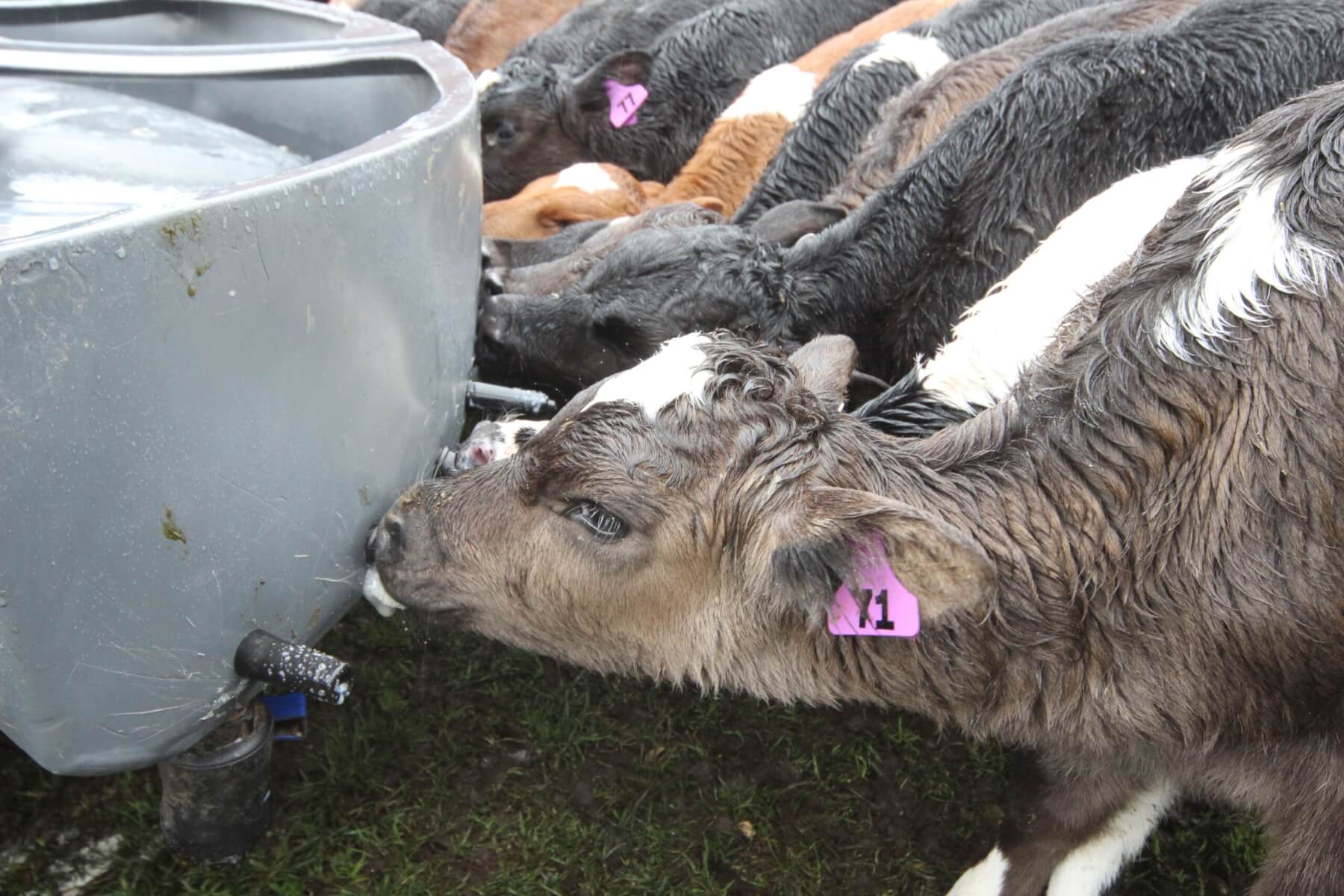The rural economy – and potentially its major service towns – is about to get a shot in the arm.

Calves feeding. Photo: Mary Anne Gill
The region’s dairy farmers will receive an extra $65 million if Fonterra delivers on its promise of a record payout for this season – although it is only about $1 a kilogram of milk solids above breakeven for the average farmer.
The dairy co-operative, New Zealand’s largest company, raised the midpoint of the 2024/25 season forecast farmgate milk price this month to $9.50 a kilogram of milk solids from $9.
Open Country Dairy and the Tatua Dairy Co-operative – which Waikato and King Country dairy farmers also supply to – typically payout a little more.
It’s a substantial jump from last season’s $7.83 and $8.33 in the 2022/23 season.
The forecast extra 50 cents a kilogram puts an additional $75,000 in the pocket of the average Waipā district dairy farmer producing 149,393 kilograms of milks solids, or $36.8 million when multiplied across the district’s 493 dairy farms. If $9.50 is achieved, the average Waipā dairy farmer will take home $1.4 million, worth a collective $700 million to the district.

John Bluett
“The extra 50 cents is making a lot of guys profitable,” said Waikato Federated Farmers executive member and dairy farmer John Bluett.
Most farmers would use the extra cash to pay their debts in the short term.
“There’s a lot of debt sitting there from the last couple of years, service industry credit, and it’s given them the chance to pay it off.”
In the long term, farmer will use the cash windfall to start new projects.
“Guys will be in a good position,” he said.
He advised farmers to save a portion of the payout in a six-month term deposit to make the most of the bonus.

Shane Walsh
While 10 cents more than the record $9.40 payout, Bluett said the end of season payout would need to be closer to $11 to have a similar effect considering rising costs.
“It’s very positive,” said Te Awamutu Business Chamber chief executive Shane Walsh.
“Interest rates are also coming down, and the pressure coming off people’s mortgages will means there is more money in the economy going into rural towns like Te Awamutu.”
The additional payout is as significant for the Cambridge economy as it is across the district.
Cambridge Chamber of Commerce chief executive Kelly Bouzaid also welcomed the news.
“This increase will likely lead to greater spending within our local businesses, especially as farmers reinvest in their operations, make personal purchases, and support local services,” she said.

Kelly Bouzaid
“We anticipate a natural impact on sectors like agricultural supplies, equipment maintenance will flow on into retail and hospitality as farm incomes increase.
“This well needed boost not only strengthens the rural economy but will have a positive ripple effect on the broader community, enhancing economic resilience and fostering greater confidence heading into 2025.”
Agricultural equipment dealers say they expect debt repayment to be the priority and believe it could be six to 12 months before they see a flow through.








